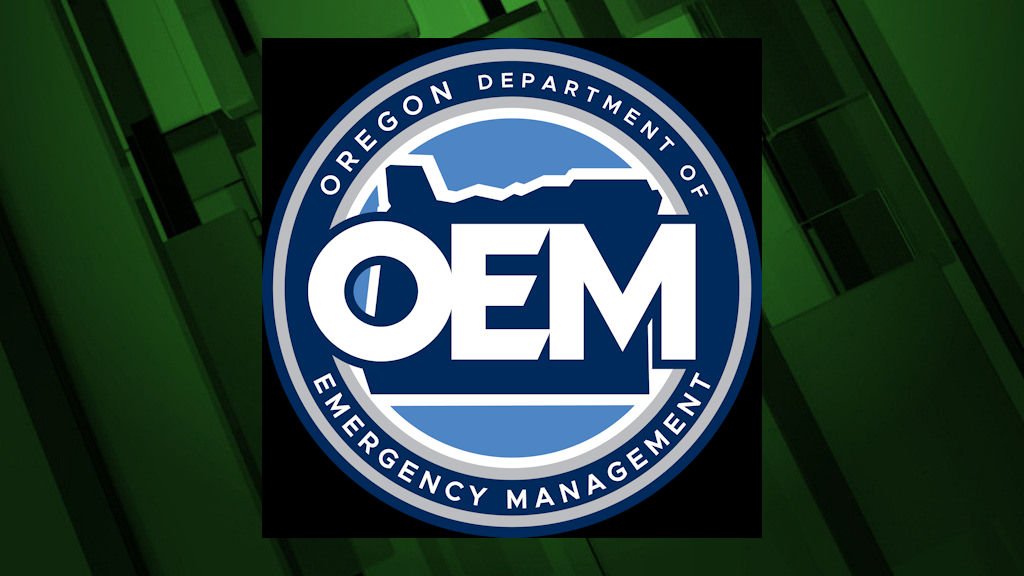Oregon Office of Emergency Management transitions to stand-alone Dept. of Emergency Management

SALEM, Ore. (KTVZ) -- Effective Friday, Oregon’s Office of Emergency Management is officially operating as the Oregon Department of Emergency Management.
A result of House Bill (HB) 2927, passed in 2021, this transition establishes OEM as a stand-alone cabinet-level department, reporting directly to the governor. The agency previously served as a division of the Oregon Military Department since its founding in 1981.
“For our communities, for our state, and for our economies to continue to thrive, Oregon must be resilient and ready to recover from natural disasters,” said Gov. Kate Brown. “By prioritizing emergency management, we are ensuring that Oregon is better prepared and ready for such events. Standing up the Oregon Department of Emergency Management will strengthen coordination and response between local, tribal, state and federal jurisdictions and communities, helping to save lives, protect our critical infrastructure and prepare Oregon communities across the state before the next catastrophic event occurs.”
The Oregon Department of Emergency Management will operate under the familiar acronym of OEM – Oregon Emergency Management – to continue building on the agency’s credibility and recognition. A rebranded logo prominently features the outline of the state to better represent all communities it serves.
“The disasters of the last few years brought our agency – and emergency management as a whole – to the forefront in a way none of us could have anticipated,” said Oregon Department of Emergency Management Director Andrew Phelps. “The 2021 legislative session clearly demonstrated support from Governor Brown and the legislature, especially Representative Paul Evans who was a chief sponsor of the legislation, of Oregon Emergency Management and the work we do. This establishment better positions our organization to prioritize risk reduction and mitigation efforts while maintaining local support statewide for managing the consequences of disasters.”
Becoming a stand-alone department coincides with unprecedented growth in state-level emergency management. Since the 2021 legislative session, OEM has more than doubled its staff and seen budgetary increases to fund the increased capacity. These investments have allowed for a restructure of the agency to better support local and tribal jurisdictions through all phases of disasters, including readiness, response, mitigation and recovery.
Regional coordination teams now serve as dedicated local points of contact, bridging gaps and strengthening relationships with emergency management professionals. These coordinators are joined by a tribal liaison for Oregon’s nine federally recognized tribes; and key roles to guide and implement inclusion, equity and accessibility initiatives unique to each community.
OEM has also expanded its mitigation capacity to assist and guide investments in risk reduction initiatives, looking forward at the shifting hazards to mitigate the risk of impacts caused by a changing climate.
“Disasters are policy issues,” explained Phelps. “They are often a result of how we build, where we build, and the investments we choose to make. Expanding our mitigation efforts will help insure we are not preparing for the disaster we faced a decade ago, but for those we face today and in years to come.”
Recognizing that disasters have a disproportionate impact on vulnerable populations, the department is prioritizing a comprehensive and equitable approach to emergency management. OEM will continue to evolve its policies and programs to better support all communities in the state, with intentional focus on those historically marginalized and underserved. Identifying and mitigating factors contributing to existing disparities is key to ensuring programs and resources are equitable, inclusive and accessible.
HB2927 also transferred the Oregon Emergency Response System call staff from the Department of State Police to OEM in the 2023 biennium; and transferred the Oregon Homeland Security Council from OEM to the Governor’s Office.
Additionally, HB 2927 created two advisory councils to provide recommendations to the Governor’s Office and OEM on emergency preparedness, response, mitigation and recovery: The Emergency Preparedness Advisory Council on which OEM has a seat, and the Local Government Emergency Management Advisory Council, for which OEM will provide staff support.
“This transition has been in motion since July 1 of last year, and we are excited the day has finally arrived,” said Phelps. “All of us at OEM are eager to continue partnering with the communities we serve to modernize emergency management and build a culture of preparedness in Oregon – one that empowers individuals, families and communities to be disaster survivors rather than victims.